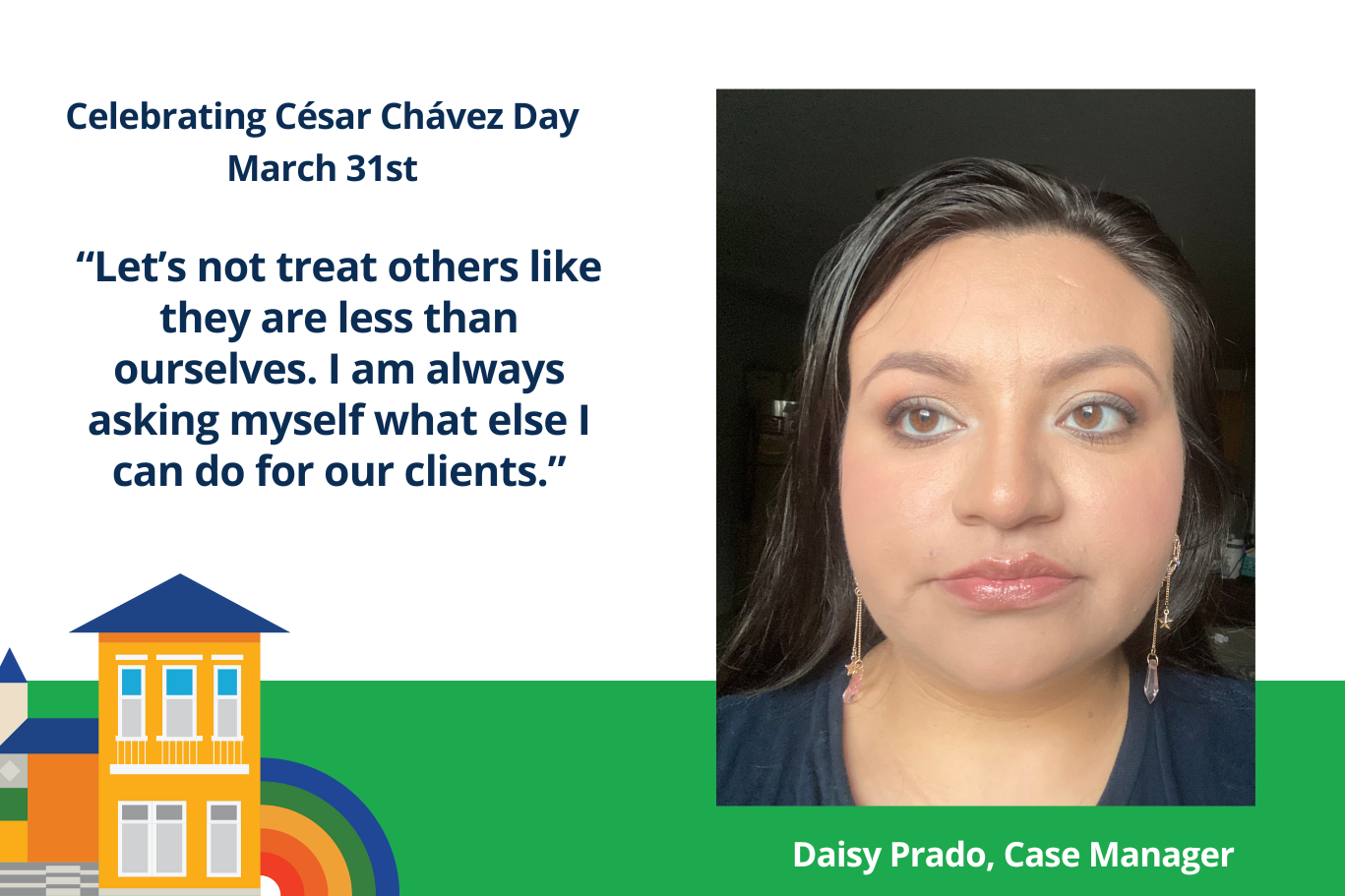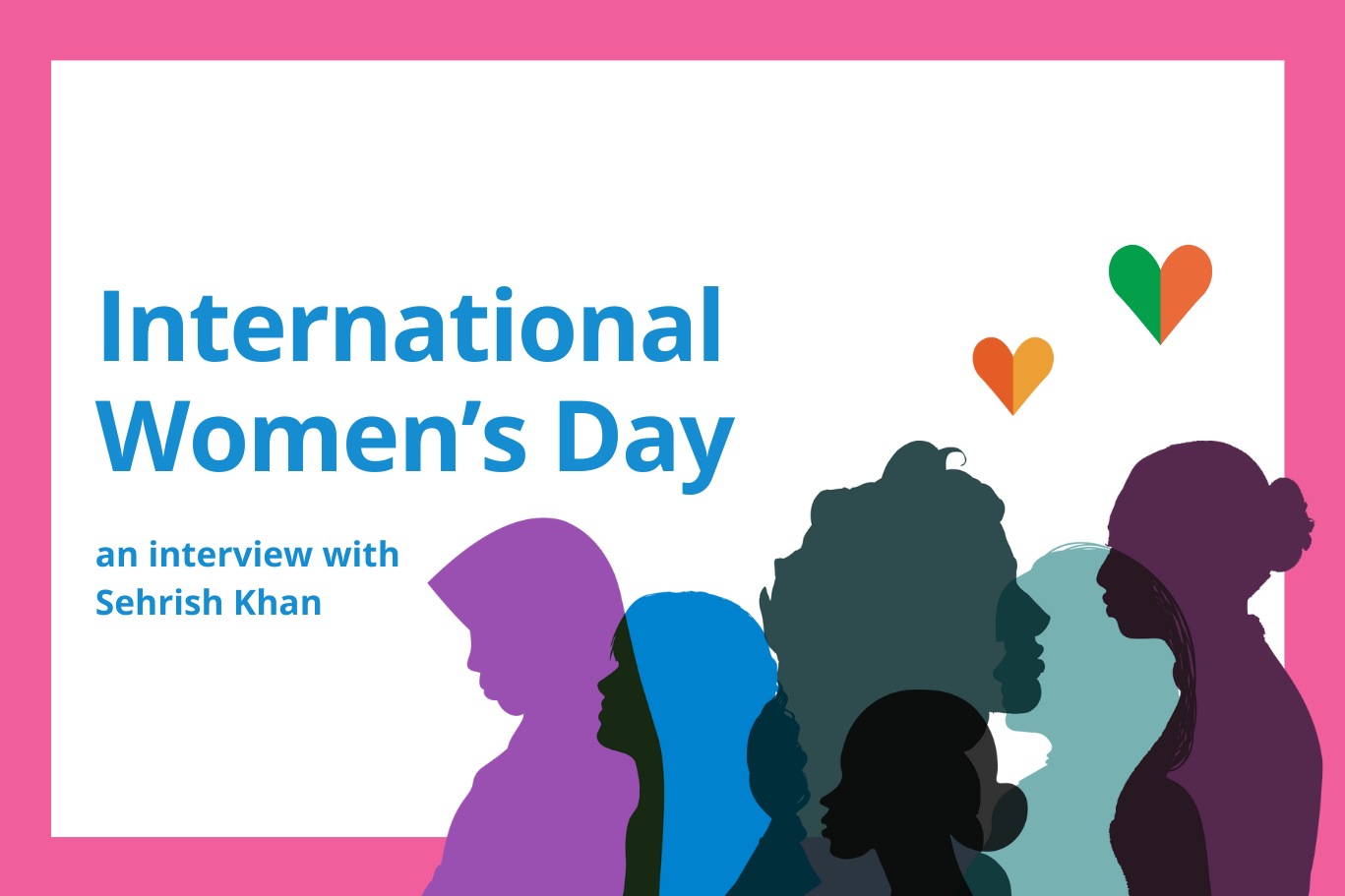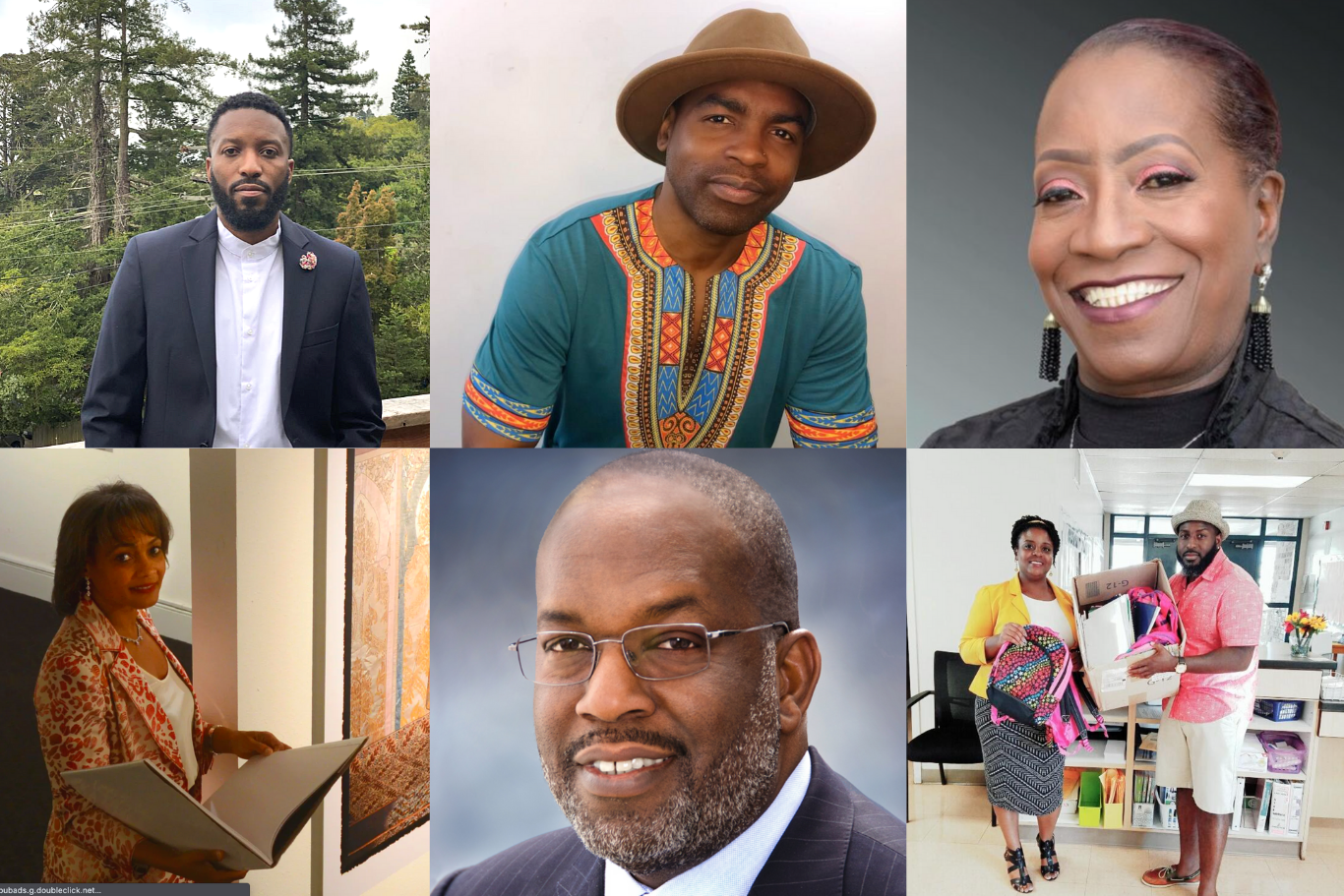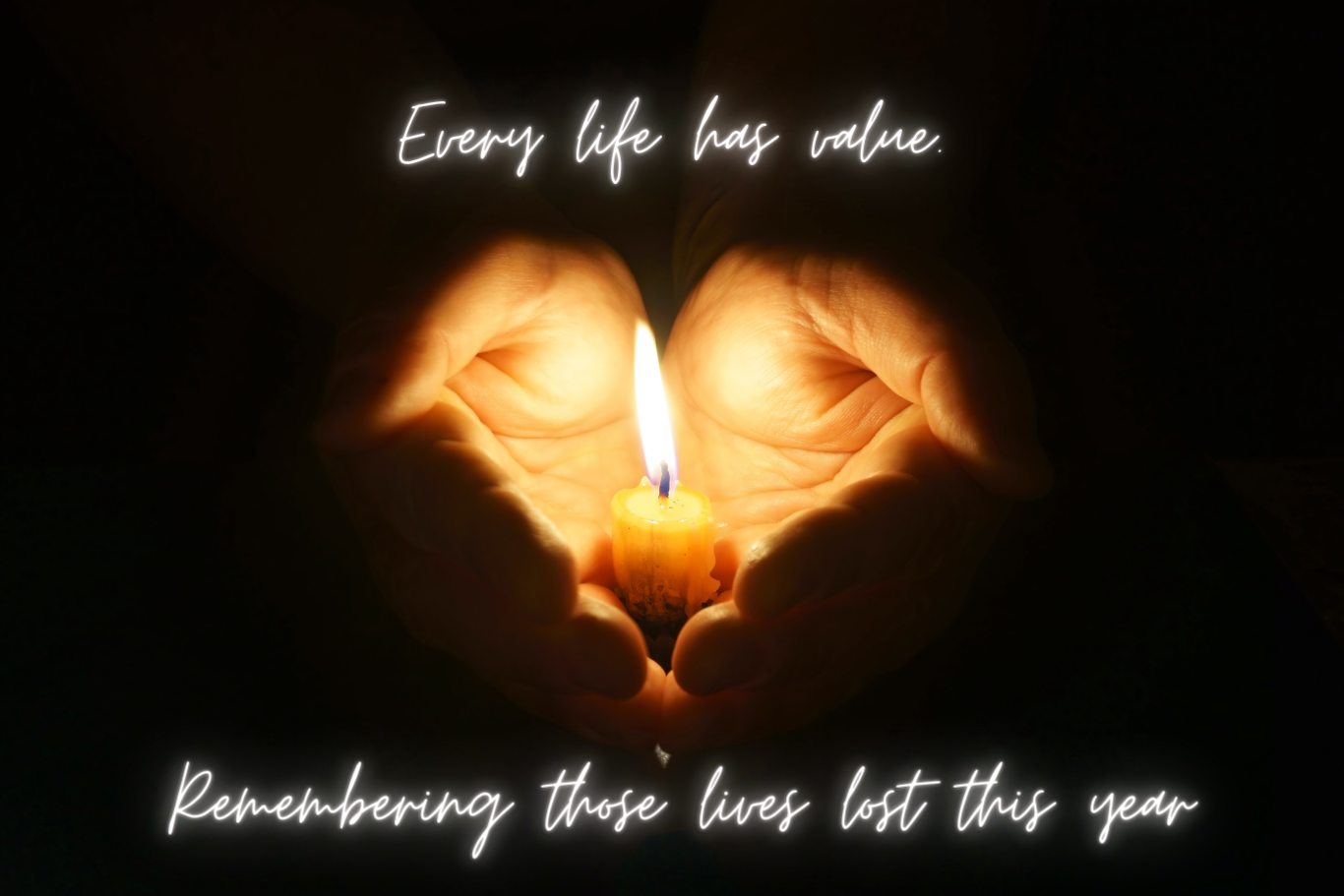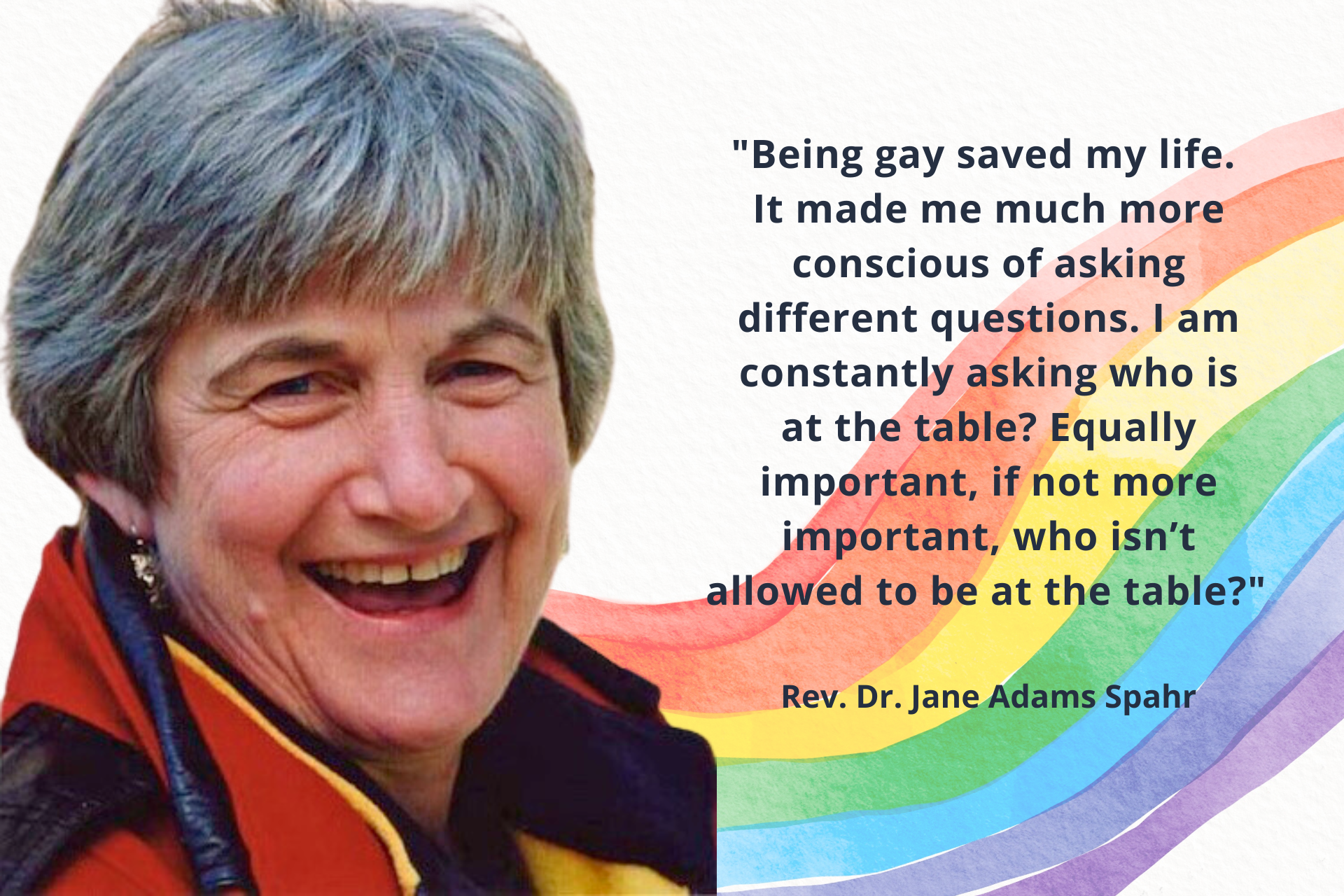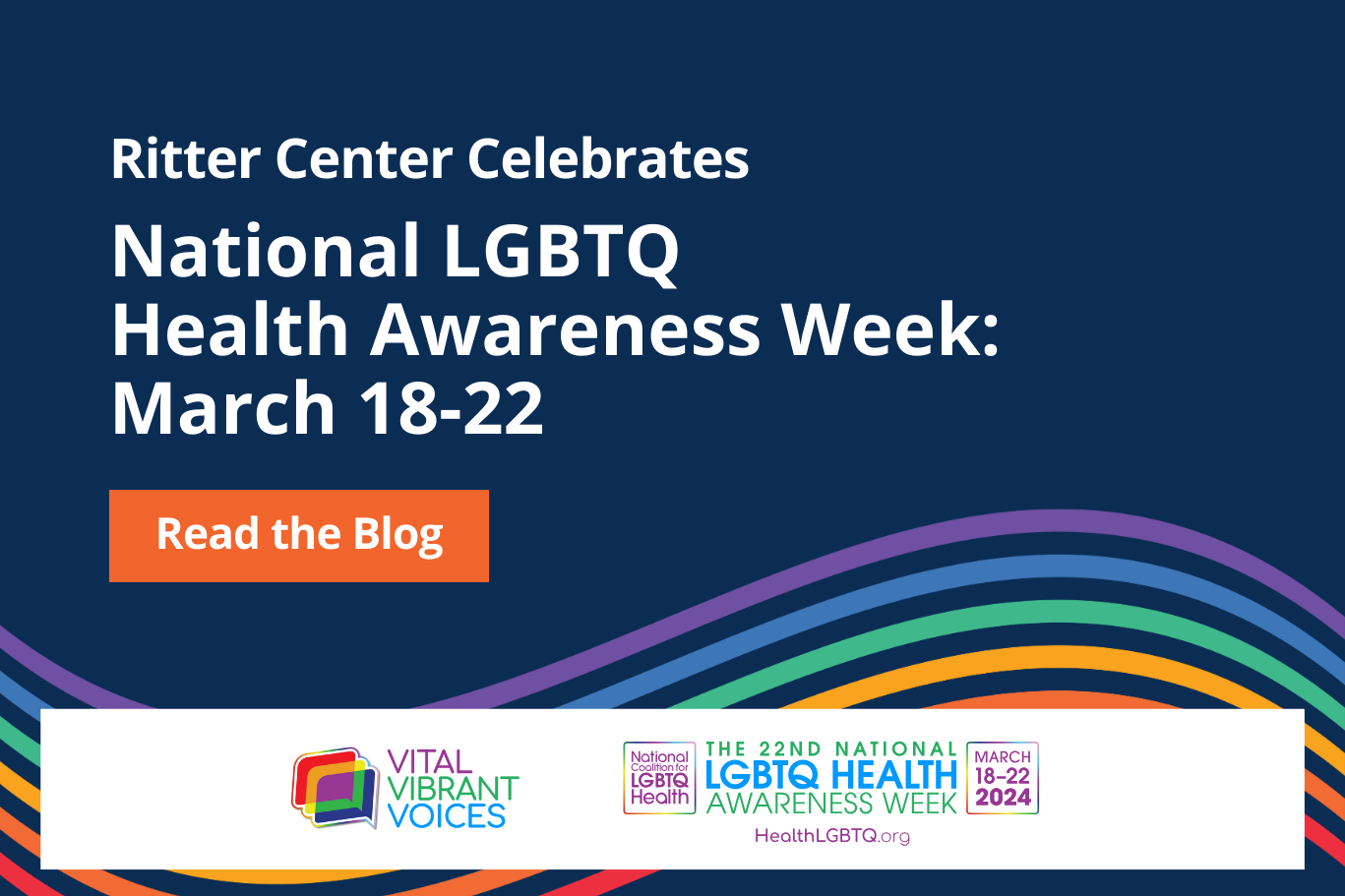
LGBTQ Health Awareness Week
March 18-22 marks the 22nd National LGBTQ Health Awareness Week, and Ritter Center is joining the dialogue to emphasize the vital role of vibrant and diverse voices in raising awareness about the health challenges facing the LGBTQ community, and advocating for improved health outcomes.
“The current challenge we are facing in Marin is The Spahr Center stopping services. It was one of the few LGBTQ focused organizations, and this has greatly impacted clients from receiving harm reduction supplies, HEP C, HIV testing and other services that they used to provide,” said Ritter Center Clinical Compliance Director Sehrish Khan. “In addition, there have been various legislative efforts underway across our country that will impact healthcare access to trans individuals, specifically gender-affirming care, or insurance coverage for transgender-related healthcare. This will make it difficult for this population to get healthcare access if any of these bills pass and will lead to poor health outcomes.”
Another important issue is that many services are not exclusively trans-centered/trans affirming, and this acts as a barrier to trans people accessing multiple kinds of support. Ritter Center Whole Person Care Behavioral Health Integration Specialist Ian Palmer is deeply familiar with this topic from his previous work in Philadelphia working exclusively with the transgender population. “Trans specific shelters are needed because if a trans person does not feel safe, physically and emotionally, then they will not access shelter services. This is important to note because shelters are often the gateway to receiving other services. Additionally, the dearth of trans specific services across the range of social services, more specifically treatment- substance use and/or mental health, means that trans people are not accessing these services in the same way other members of the queer community are able to in the community,” said Ian.
“Coming to Marin from Philadelphia, I was initially shocked to find that there are significantly less resources here that are tailored to this specific population. Compounding the issue for individuals who identify as trans specifically is that the staff may not have adequate LGBTQ and/or trans specific training to effectively serve a trans person. Also, people have valid concerns about their safety in shelters where they are not explicitly served. There is already a fair amount of queer phobia and transphobia,” explained Ian.
He also pointed to another issue deeply impacting this population: the requirement to use a person’s birth name can be challenging for someone who no longer identifies with that name, but yet must utilize it when trying to navigate a system for documentation, legal or insurance purposes. “When I am meeting with someone, I can address why we may need to use a certain name to access services, but that it is not intended to undermine or erase their identity. The system is already cumbersome enough and fraught with challenges,” noted Ian.
“The goal is to tailor services in order to have a successful engagement. The fears around safety, real and perceived, are so important. Safety on both a physical and emotional level are major components. If they don’t feel safe, they are not going to go. If their identity will not be respected, then it is a major challenge. Marin lacks a queer specific shelter here, and this is a serious gap,” said Ian.
In many places, trans services are lumped together with LGBTQ services and this doesn’t necessarily mean that services are trans affirming. “The most vulnerable population is trans and a trans person may have multiple, intersectional identities such as a person of color, living in poverty, and unhoused. Each layer of identity impacts their sociogenic stressors. Traumatization of the body and the spirit is profoundly important. We don’t want people to have their identities erased or ignored,” urged Ian.“People who are marginalized by specific systemic trans phobia issues need radical interventions. If they can’t receive the services they need, then they can end up resorting to gray market economies.”
Director of Administrative Services Alice Raschke pointed out that harm reduction as a practice has roots in the community, and much of the benefits and outcomes of offering these types of services originated from actions from Queer activists.
It is a timely point as Ritter Center now has a harm reduction room in the behavioral health building stocked with supplies including a syringe exchange. The plan is to keep the medicine street van also fully supplied with these critical items.
This National LGBTQ Health Awareness Week’s theme, “Vital Vibrant Voices”, speaks to the VITAL need for VIBRANT and diverse VOICES to address #LGBTQHealth issues. Visit https://healthlgbtq.org/awareness-week/ for resources from the National Coalition for LGBTQ Health to help you lend YOUR voice to the cause through awareness, education, and advocacy. You’ll find workshops, presentations, webinars and more!
